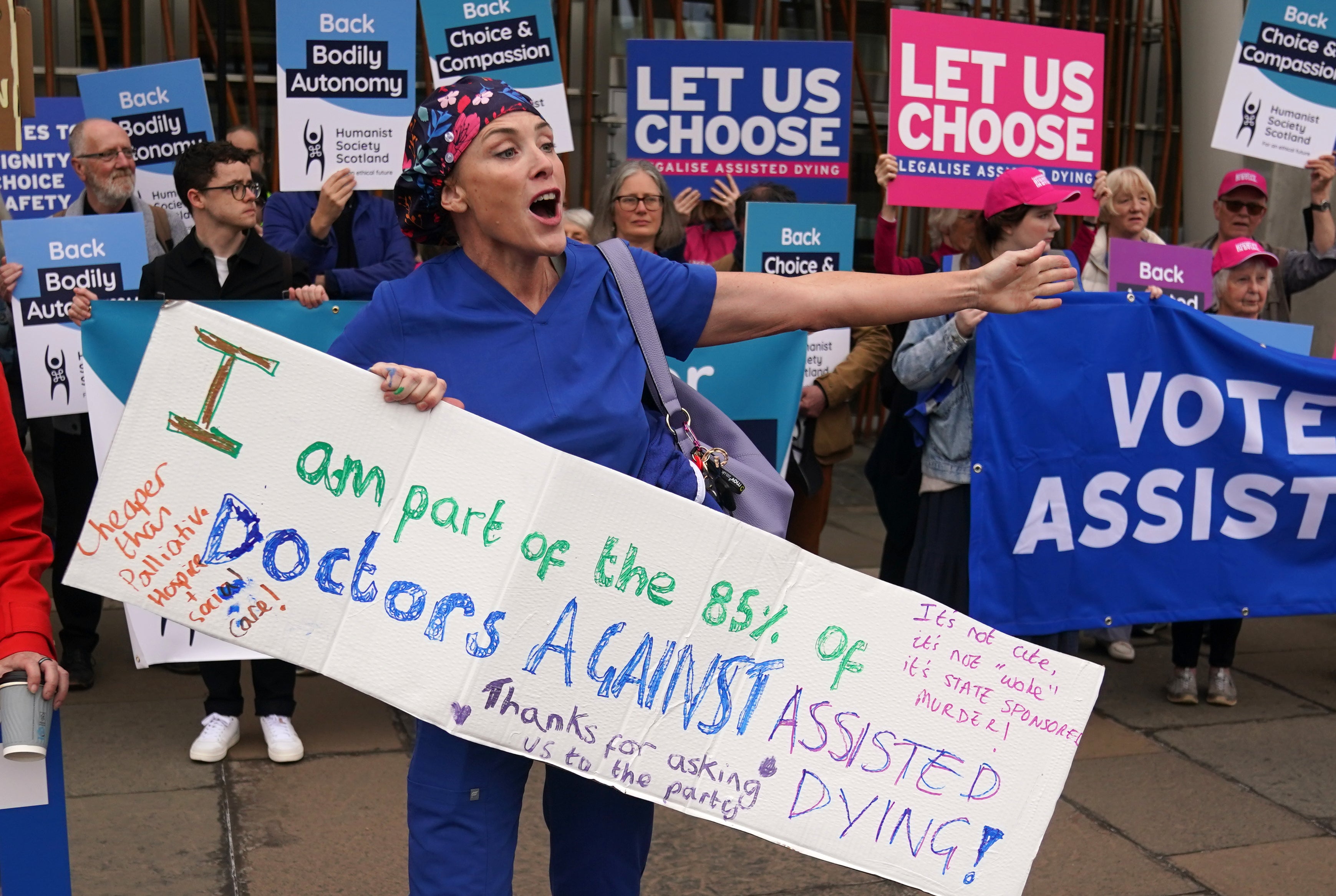Is the tide really turning against assisted dying?
Ahead of the next Commons debate on Friday, John Rentoul assesses the chances of it becoming law


As the Scottish parliament backed the general principles for assisted dying in a vote, reports suggested some MPs might be turning against the equivalent bill at Westminster, which will be debated in the Commons on Friday.
No 10 announced that Keir Starmer will be in Albania for the European Political Community summit on Friday, and so will miss the debate. The prime minister personally supports the bill, along with two-thirds of cabinet ministers, but the government is formally neutral on the subject.
On Wednesday the Royal College of Psychiatrists withdrew its support for the bill, issuing a statement: “The RCP has reached the conclusion that we are not confident in the Terminally Ill Adults Bill in its current form, and we therefore cannot support the bill as it stands.”
A BBC survey of GPs also found a majority were opposed, although it was not a representative sample. BBC News sent more than 5,000 GPs a questionnaire; “more than 1,000 GPs replied, with about 500 telling us they were against an assisted dying law and about 400 saying they were in favour”.
At the same time, it was reported that at least five MPs who previously abstained on the bill have decided to vote against it – although another two abstainers have decided to support it.
What will happen on Friday?
Friday is the bill’s report stage, which is when the committee formed to consider it in detail “reports” back to the whole House of Commons. There are likely to be votes on a few amendments to the bill, if the speaker judges that they have significant support among MPs.
Most attention is focused on an amendment that would require the government to make “an assessment of the availability, quality and distribution of appropriate health services to persons with palliative and end of life care needs”.
Other amendments that are gathering support include a prohibition on doctors from raising the prospect of an assisted death with patients, and an exclusion for eating disorders such as anorexia being defined as a terminal illness.
But there is unlikely to be a vote on the principle of the bill itself. For that reason, the prime minister’s absence is not significant and is unlikely to mean that he is having second thoughts.
The critical vote is expected on 13 June, or possibly later if there are a lot of amendments to consider. That will be the vote on third reading, which is the final stage in the Commons, before the bill goes to the House of Lords.
So, will the bill become law eventually?
The bill is likely to pass when it does get to third reading. It secured a larger-than-expected majority of 55 in its first vote in November. If a handful of the 46 MPs who abstained then vote against it, it will still pass. None of the MPs who voted for or against in November has publicly changed their mind.
Supporters were bolstered by the passing of a similar bill by the Scottish parliament by a 14-vote margin on Tuesday.
How has the bill changed since November?
The big change came in February, when Kim Leadbeater, the Labour backbencher who sponsors the bill, announced that she would remove the role of a High Court judge as the backstop and replace it with a panel of experts.
As one of those experts would be a psychiatrist, the Royal College’s opposition is significant, but does not appear to be decisive.
The bill would allow a doctor to assist a patient to die in England and Wales – if the patient has a terminal illness with less than six months to live, and if the decision is approved by two doctors and a panel including a specialist lawyer, social worker and psychiatrist.
What is happening in Scotland?
MSPs at Holyrood voted by 70 votes to 56 in favour of the Assisted Dying for Terminally Ill Adults (Scotland) Bill introduced by Liberal Democrat Liam McArthur, with one abstention.
Afterwards, Mr McArthur said: "This is a landmark moment for Scotland."

A number of high profile MSPs, including first minister John Swinney, deputy first minister Kate Forbes, and former first ministers Nicola Sturgeon and Humza Yousaf had all voted against the bill, along with Scottish Labour leader Anas Sarwar.
Holyrood had previously rejected two attempts to legalise assisted dying at the first vote, with MSPs voting down similar proposals in both 2010 and 2015.
However, with the parliament having backed the general principles of the bill, it will now go forward for further scrutiny and amendments. It will become law only if MSPs approve it in a final vote, which should take place later this year.
As it currently stands, the bill would only allow people who have lived in Scotland for at least 12 months, and who are registered with a GP in Scotland, to request an assisted death. Two doctors would both have to certify someone is both terminally ill and has the mental capacity to make such a request for this to proceed.
There would also be a period of at least two weeks between a request being made and the necessary medication being provided – with the patient having to be able to take this themself.
As with the equivalent in Westminster, the bill in Scotland was introduced by a member, not the government.
Join our commenting forum
Join thought-provoking conversations, follow other Independent readers and see their replies
Comments